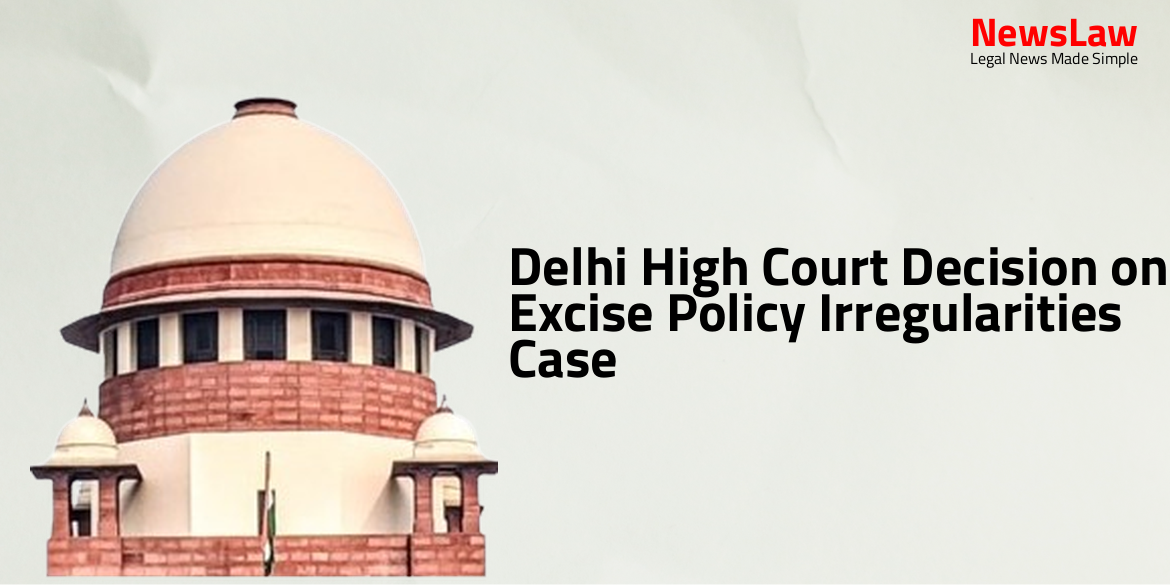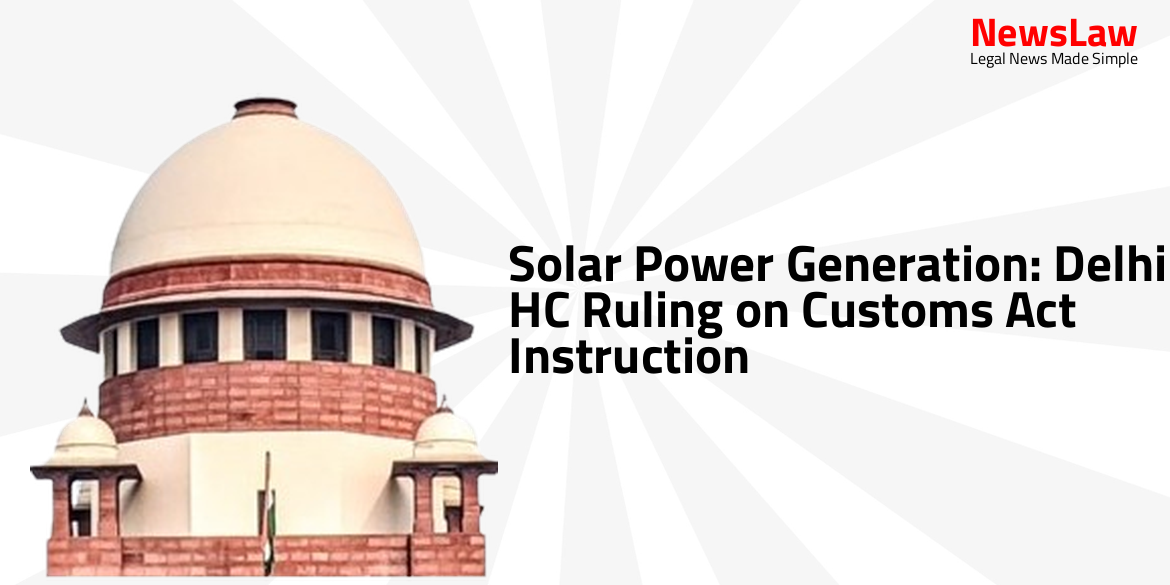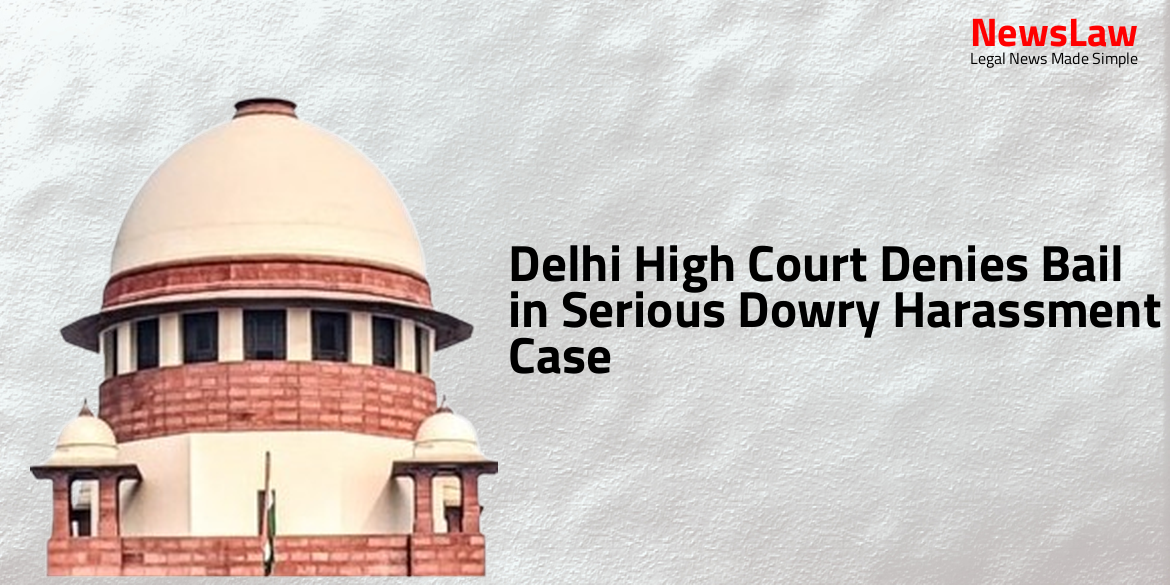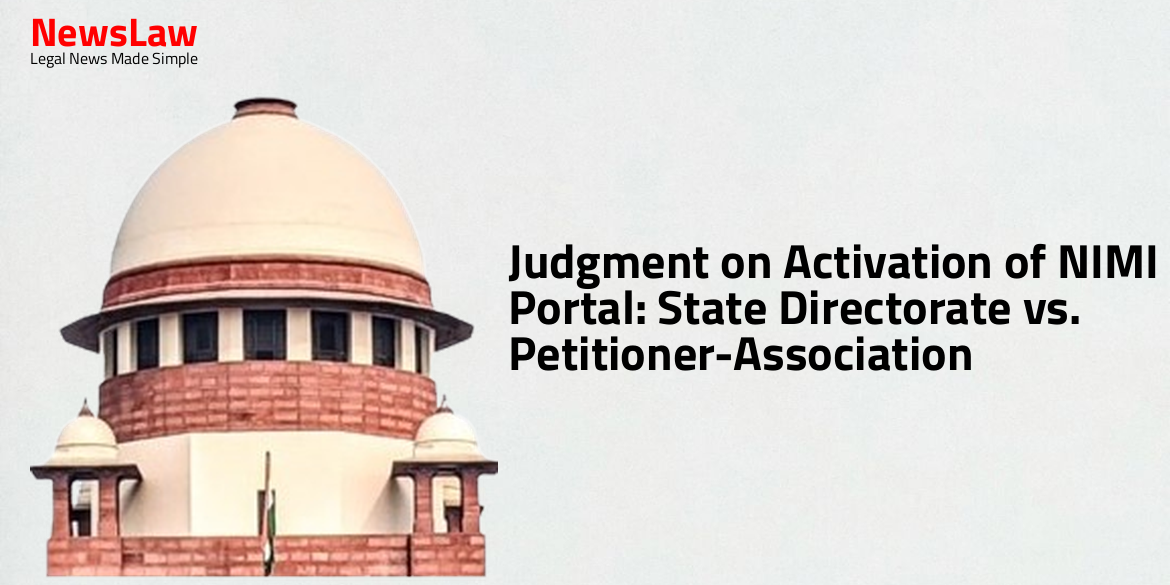In a recent landmark ruling by the Delhi High Court, a decision has been made regarding the Excise Policy Irregularities Case. This case revolves around allegations of irregularities in Delhi’s Excise Policy for 2021-2022, with multiple hearings and interim bail applications filed. The court’s decision sheds light on the intricate details of the case and sets a precedent for similar legal proceedings in the future.
Facts
- The case was registered by the CBI on 17.08.2022 based on a complaint regarding irregularities in Delhi’s Excise Policy for 2021-2022.
- Accused persons were alleged to have engaged in a criminal conspiracy during the formulation of the policy.
- Multiple hearings took place regarding interim bail applications and hospitalization of the applicant.
- Various applications were filed seeking medical treatment in private hospitals while in custody.
- The applicant was hospitalized in different hospitals for surgery, physiotherapy, and post-surgery care.
- Allegations of substantial kickbacks to public servants for benefits in the liquor trade were raised.
- A committee was formed to assess medical equipment requirements in jail hospitals.
- The applicant moved multiple applications seeking interim relief during the bail application process.
- Contrary to a claim made, the regular bail application was actually heard on a lesser number of occasions.
- The applicant was allowed to be transferred to a private hospital for treatment on certain occasions.
- Issues regarding unavailability of physiotherapy machines in jail hospitals were addressed.
- Notice was issued for applications seeking transfer to private hospitals instead of AIIMS.
- Arguments on bail application were addressed on only four occasions by the Bench.
Arguments
- The Petitioner argued that he was a whistleblower who organized the filing of complaints before the Excise Department and petitions before the Courts regarding irregularities in the liquor market.
- The Petitioner cooperated with the CBI during the investigation, joining more than 35 times when called.
- The Petitioner’s company had a longstanding relationship with manufacturers without any need for conspiracy.
- The Petitioner’s balance sheets indicated consistent margins without risks.
- The Petitioner had no motive to engage in the alleged criminal conspiracy given the favorable terms under the old policy.
- The Petitioner was a part of industry-related WhatsApp groups where information on policy developments was shared, but did not obtain any confidential documents directly from public officers.
- The Petitioner’s health condition, having undergone surgery, was also highlighted as a concern in seeking bail.
- It was argued that the Petitioner’s arrest was unnecessary as the investigation had been completed, and other alleged conspirators had been granted bail or not arrested.
- The Petitioner’s role as a whistleblower and the lack of evidence justifying his continued custody were emphasized in the plea for bail.
- CBI argues there is sufficient evidence showing the applicant was part of a conspiracy and influential in implementing the Excise policy.
- Witnesses known to the applicant or with business relationships with him may be influenced or evidence tampered with if he is released on bail.
- CBI prays for the dismissal of the bail application.
- Applicant argues he fulfills the triple test for bail and should be granted bail.
- Applicant’s passing of additional credit notes and possession of confidential documents questioned.
- Applicant claims no irregularities found in income tax returns and company accounts.
- Applicant’s involvement as a whistleblower and disputes with other accused highlighted.
- Economic offenses taken seriously as they affect the country’s economy.
- Applicant cited as a well-established and influential person in the liquor business.
- Another FIR registered against the applicant and others based on bribery allegations.
- Applicant allegedly requested someone to withdraw a petition.
- Arguments made regarding the legality and motivations behind the FIR and withdrawal of the petition.
Analysis
- There was alleged delay in deciding the bail application, but it was eventually heard and concluded on 08.07.2024.
- The statement of Chartered Accountant Praveen Vats highlighted the payment details and dates of bribes made to influential individuals.
- A WhatsApp chat revealed that the applicant shared co-accused Vijay Nair’s contact details with Benoy Babu.
- The argument regarding issuance of additional credit notes without manufacturer direction was refuted with statements confirming lack of manufacturer instructions.
- Investigation revealed incriminating documents seized from the applicant’s premises.
- The applicant’s claim of being a whistle-blower was questioned based on evidence.
- Cash transactions and agreements regarding removal of name from the case were highlighted in the FIR.
- Additional credit notes given without prior agreement or trade scheme information were brought to light.
- The applicant arranged meetings between Vijay Nair and key liquor manufacturers/stakeholders.
- Investigations disclosed the applicant’s distributor role for DIAGEO in Delhi.
- A separate FIR registered against the applicant further pointed towards bribery and attempts to avoid being implicated in the liquor scam case.
- The delay in hearing the bail application cannot be attributed to any court and cannot be used as a ground for granting bail.
- The legal principles governing the grant of regular bail under Section 439 of the Cr.P.C. have been summarized by the Supreme Court in various cases.
- Factors considered for granting bail include prima facie evidence of the accused committing the offence, nature and gravity of the accusation, severity of punishment, likelihood of the offence being repeated, etc.
- In cases of economic offences, a different approach is taken, considering the deep-rooted conspiracies and significant public funds involved.
- The severity of economic offences is highlighted as they pose a serious threat to the financial health of the country.
- The court, while granting bail, must assess the nature of accusations, evidence, severity of punishment, and other relevant factors without requiring evidence to establish guilt beyond reasonable doubt at that stage.
- The applicant’s role in the conspiracy has been established since its inception
- He was instrumental in the payment of additional credit notes worth Rs. 4.97 crores
- Evidence from various witnesses and the approver highlights his involvement
- Charges are yet to be framed and evidence is yet to be recorded
- An FIR is already registered against the applicant for paying a bribe
Decision
- The Bench was on leave on 21.02.2024, and arguments on the main bail application were not addressed on behalf of the applicant.
- Interim bail application filed by the applicant was reserved for orders after hearing arguments and a 23-page judgment was delivered on 22.12.2023 disposing of the application.
- The Court preponed the date of hearing in the present case to 21.05.2024. Key dates and actions related to the bail application were outlined.
- Applicant had filed an application seeking early hearing of the bail application, but it became infructuous.
- The Hon‟ble Supreme Court directed the High Court to decide on the bail application prior to the summer vacations, prompting the need for expedited adjudication.
- Series of dates and actions related to the bail application were summarized, including listing dates, orders passed by Predecessor Bench, and actions by the current Bench.
Case Title: AMANDEEP SINGH DHALL Vs. CENTRAL BUREAU OF INVESTIGATION (2024:DHC:4677)
Case Number: BAIL APPLN.-2229/2023



